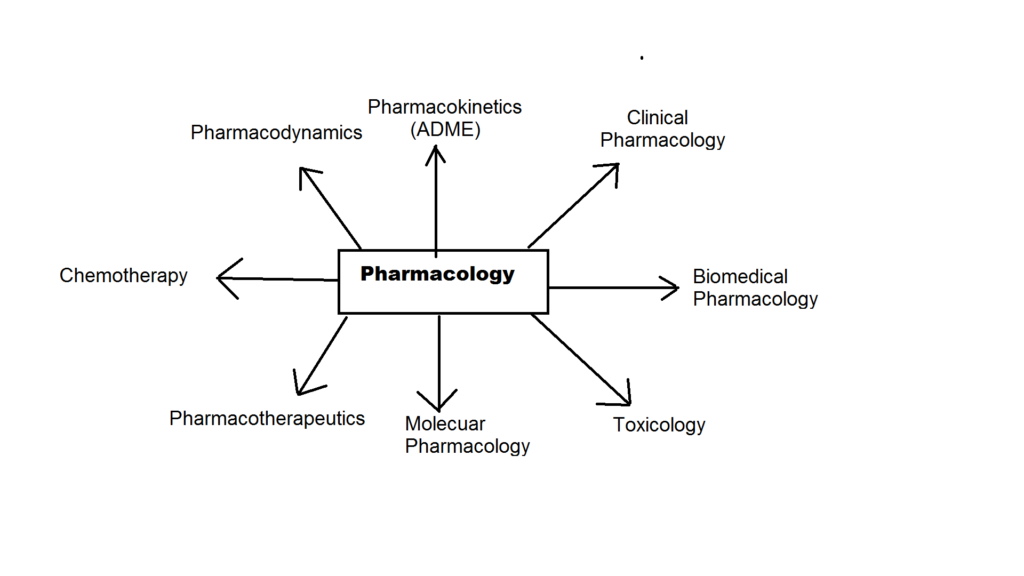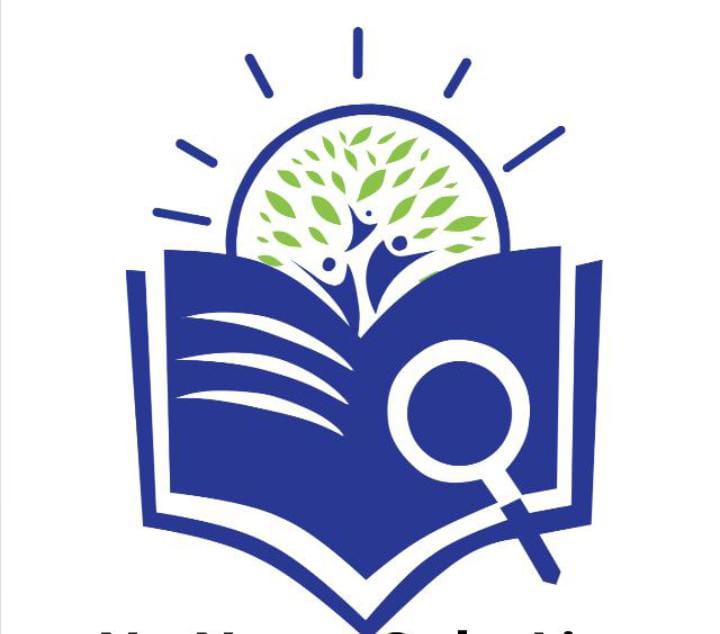Table of Contents
What do you understand by pharmacology? Discuss briefly about the various branches of pharmacology.
The term pharmacology is derived from a Greek word Pharmakon which means “drugs and Logos which means science. So pharmacology is a science that deals with drugs. Early pharmacologists most of their attention on plant products such as atropine, quinine, strychnine, digitalis etc. Earlier in the 20th century the boom in synthetic chemistry had revolutionary effects on the pharmaceutical industry. The emergence of many synthetic drugs such as barbiturates, local anesthetics, chemotherapeutic agents, sulphonamides and other new classes of drugs were challenging pharmacologists, Simultaneously. rapid growth of physiology also encouraged pharmacologists in the field of clinical practice and pharmacology became an accepted science among the biomedical sciences.
Pharmacology, today is a new biomedical science that applies principles of scientific experiments of therapeutic context. The effectiveness of pharmacology is based on firm foundation of pathophysiology of the disease and chemistry on which the drug therapy depends. This also involves reasoning out the mode of action, effects on various body systems and adverse effects.
Drugs are chemical moieties which when administered to an individual vary the vital function and endogeneous substances of living organism, thereby causing change in its manifestations.
By definition drugs are the substances used for cure, treatment, diagnosis and prevention of a disease.
However, the above definition is not perfect as it does not include the following cases that are not disorders.
- Anaesthetics, that causes loss of sensation.
- Contraceptives, that prevent pregnancy.
- Vaccines that produce antibodies and provide immunity against disease.
Therefore, WHO has defined drugs as “any substance that is used or planned to be used for
varying or investigating the functioning of the organism (physiology) or its diseased condition (pathological condition) to get beneficial results for the subject”. Pharmacology includes isolation, identification and administration of drugs, its chemical action
with receptors, metabolism and its role in varying the normal functioning of the body. Pharmacology plays a major role in providing efficient and safe drug treatment to meet all the requirements of the patient. It deals with the comprehensive study of drugs, its properties and effects including all the diversified topics that are associated with it.
Branches of Pharmacology

Pharmacokinetics
It deals with absorption, metabolism, distribution and excretion processes. In short it is what body does to the drug.
Pharmacodynamics
It deals with study of biological and physiological effects produced by the drug on organisms, site and mechanism by which the above effects are produced and its duration of action related to plasma concentrations. In short, it is what drug does to the body.
Pharmacotherapeutics
It deals with clinical applications of both pharmacokinetic and pharmacodynamics aspects of a particular drug and using that information in treatment, diagnosis or prevention of disease.
Therapeutics
It is the science which deals with medicines practically i.e.. the method of drug treatment or management in drug therapy.
Clinical Pharmacology
It deals with reports of clinical evaluation of a new drug both in normal healthy people and also in patients. The pharmacological effects, potency and toxicity play a critical role in evaluation of drug safety and effectiveness.
Toxicology
It deals with the origin, chemistry, pharmacological actions, identification tests etc., of poisons. All drugs at high concentrations (administered above maximum permissible levels) act as poisons.
It also deals with the antidotes, treatment and management of poisoning
Chemotherapy
It is the study of the pharmacological effects of the drug and the treatment and prevention of the diseased conditions by these drugs. The diseases that are caused due to infections and malignancies should be treated by drugs that successfully inhibit the disease causing organism and malignant cells without being toxic to the host cells.
Other fields of Pharmacology are Pharmacy, Pharmacognosy. Biopharmaceutics, Medicinal chemistry, Biotechnology, Psychopharmacology. Pharmacogenetics, Pharmacogenomics. Pharmacpidemiology and Pharmacoeconomics.
After Reading this article You Will Get Answer of Following Questions
1 What is Pharmacology ?
2 Definition of Pharmacology
3 Definition of Chemotherapy, Toxicology, Clinical, Pharmacotherapeutics, Pharmacodynamics
Also Read
